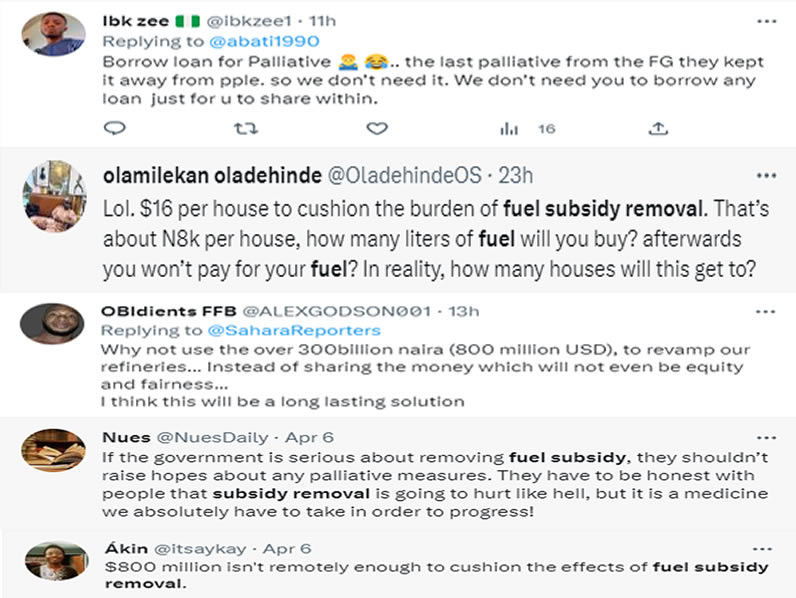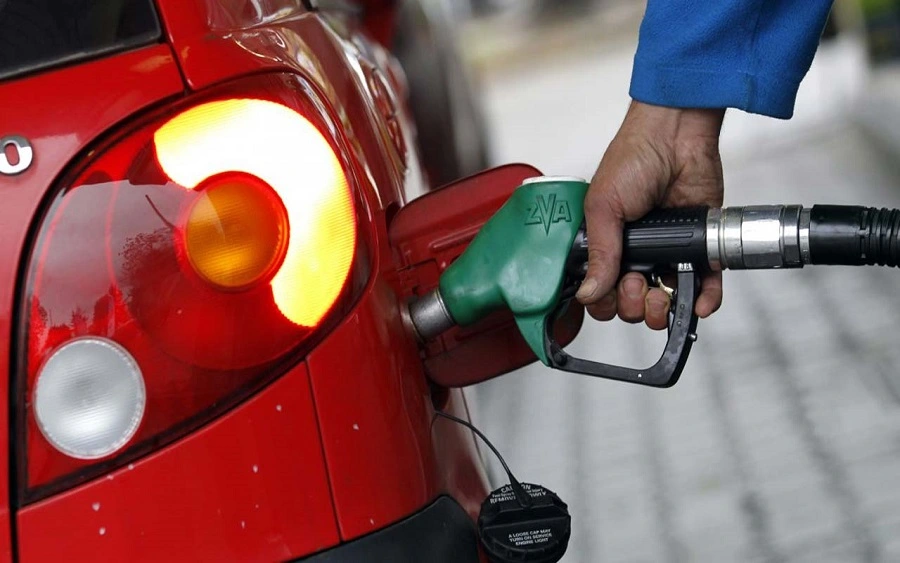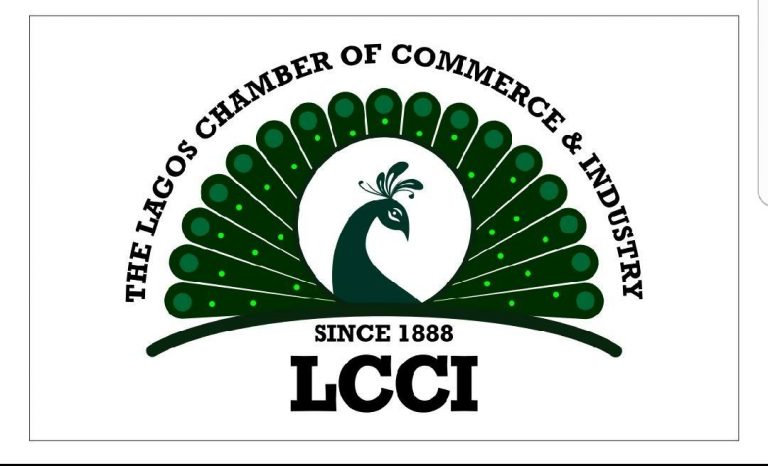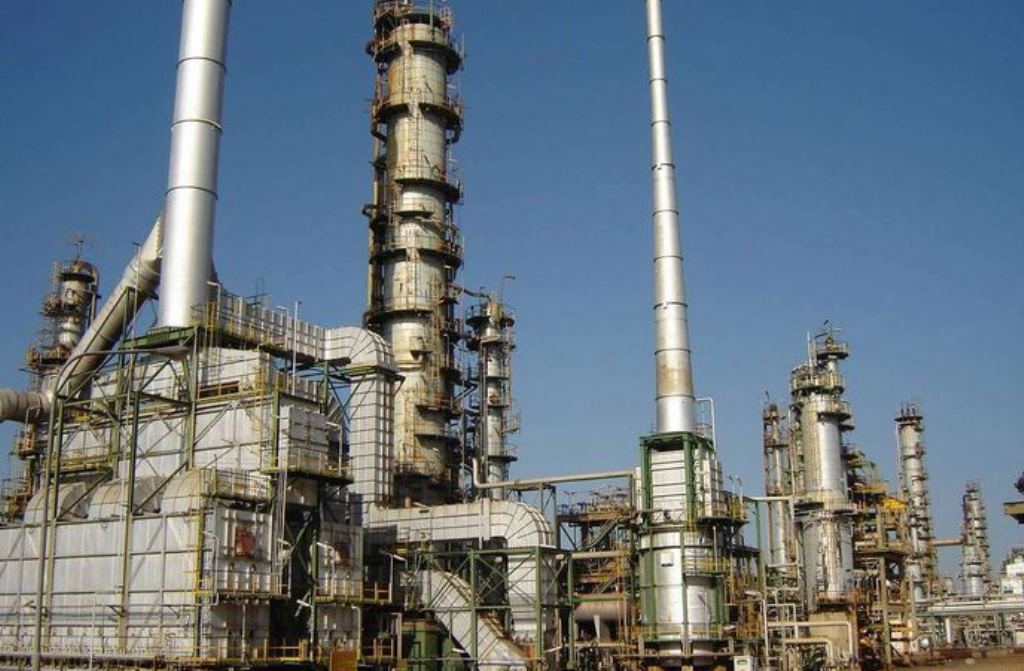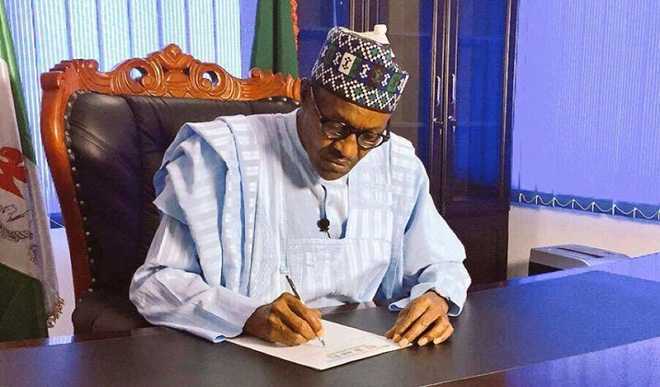By Magnus onyibe
The bitter and sweet policies of gradually abolishing fuel subsidy regime and guided floating of the naira might have taken a long time in coming-nearly six years. But as the saying goes, it’s better late than never.
And with the current developments in the monetary market and in the petroleum products retail sector, President Mohammadu Buhari has obviously softened his earlier hard stance against naira devaluation and elimination of fuel subsidy- two critical factors in the economy that have been distorting the development fundamentals of our country.
Keeping in mind that the late chief of staff , CoS to the President, mallam Abba Kyari had midwifed the assemblage of a coterie of academic eggheads, seasoned technocrats and financial consultants that got inaugurated as the new presidential economic advisory committee in replacement of the Vice President, Yemi Osibanjo led team which had been in that role since the inception of this Govt , my prediction may not be dismissed with a wave of the hand.
However, by virtue of the fact that l don’t have my name plate in any of the doors in Aso Rock Villa corridors of power, l can’t confidently lay claim to knowing fully well wether it is the new presidential economic team that has helped in shaping president Buhari’s new thinking about eliminating fuel subsidy and naira devaluation that has seen the pump price of fuel go up and naira exchange rate spike. But a gut feeling tells me that the presidential economic advisory team may be the propelling force driving the new wind blowing in the economic firmament.
The august body led by professor Doyin Salami , a don at lagos business school, along with professor Chukwuma Soludo , ex CBN governor , and mr Bismarck Rewane, a financial consultant amongst fistful of other professionals, was charged with the responsibility of crafting sound and viable economic development policies for our country.
Given that the economic ship of state of Nigeria seemed to have been drifting like a rudderless vessel being tossed up and down in the ocean and at the mercy of violent waves exacerbated by the current crude oil price volatility and COVID-19 induced global economic meltdown, the formation of the presidential economic advisory body of experts to steer the ship away from the hazard, was a timely initiative.
Although such a formidable and astute team of managers of the economy should have been instituted at the inception of the administration six years ago,president Buhari in his wisdom prioritized anti corruption war by inaugurating the professor Itse Sagay led Presidential committee on anti corruption which in my view has been hurting instead of helping Nigeria. The foregoing assertion is underscored by the fact that it is the committee and the EFCC that have been de- marketing our country through the numerous mind boggling and mostly unsubstantiated claims of monumental corruption that they keep alleging against Nigerians which precipitated the flight of capital out of our country . The crystallization of the damage that the crying of wolf, where there is none, by members of the presidential anti corruption committee and other agencies of govt , especially the minister of Information, Lai Mohamed that was cloaking Nigeria and Nigerians with the toga of corruption, culminated into the labeling of our country and people as ‘fantastically corrupt’ by former British PM, David Cameron when he was introducing president Buhari to queen Elizabeth on the sideline of an anti corruption conference held in London on May 12, 2016.
In an article titled “Which is Hurting More, Corruption or Collateral Damage From Fighting I?” that l wrote and published in ThisdayNewspaper of July 25, 2016 and also widely shared on online media platforms, l denounced what can simply be illustrated with the act of a husband calling his wife a prostitute in the presence of his neighbors which is license for the neighbors to call her worse name than a whore .The referenced piece admonished Govt against making only anti corruption the fulcrum and Centre piece of its development policy or raison dete of the administration by making a song and dance of corruption in Nigeria, simply because diplomats and international agencies in our country would send the negative fallouts back to their home countries or offices and which would negatively color the perception and influence the policies of their home countries towards Nigeria . So the motive of my essay was to draw the attention of authorities to the peril and dire consequences of taking its anti corruption war to an absurd extent as highlighted above .
Below is an excerpt from the referenced article:
“Some of us have literarily been at President Muhammadu Buhari’s ‘throat’ over what we deem to be economically, socially and politically rough methods and procedures that the president has been adopting in combating corruption in Nigerian and the catastrophic effects on the nation. Apart from the evidently obtrusive anti-corruption war, another clog in the wheel of progress is the knee jerk and pigeon hole policy initiatives that have led to failed expectations of positive outcomes, as opposed to unleashing a holistic policy package, which could have addressed all identified economic, political and social challenges harmoniously in a timeous manner, without equivocation and thus yield the desired socioeconomic liberation of Nigeria”
“By now, it must be clear to all, as it has become incontestable that, it is the economic, social and political fallouts of the brutish pursuit and tunnel vision of eliminating corruption at all costs by this administration that is the culprit for the unprecedented hardship currently putting the nation’s economy on a lockdown.
The fiasco that the economy has been plunged into is reflected in the imminent recession now confirmed by both the IMF in its World Economic Outlook, WEO report and the Central bank of Nigeria, CBN via Governor Godwin Emefiele’s recent testimony to the Nigerian senate.
Other incidents or events signposting the fact that Nigeria and indeed Nigerians are in dire straits are: social upheavals in the north east triggered by Boko Haram terrorism resulting in millions of families being consigned to living miserably in Internally Displaced People, IDP camps; renewed Niger Delta militancy focused on bombing oil facilities that has crippled oil/gas business and damaged the ecosystem and environment very badly; the recent increasingly violent crimes popping up in the suburbs of Lagos and in fact, across the country in the form of kidnappings and violent attacks on defenceless people by bandits disguised as herdsmen”
“As glaringly disruptive and debilitating as the effects of the anti-corruption war has been on the hoi poloi, whom the president is ostensibly protecting, nobody has considered a change of tactics to ease the pain on the less privileged members of society. This implies that our leaders may be oblivious of the reality of how, cruel, grueling and dreary life has become for the average Nigerian in the past one year.
In the light of the growing and palpable despondency being foisted on the populace, following the economic woes in the country fueling the emasculation of the common man, the rhetorical question elicited by the circumstances would be: which is more hurtful, corruption or the collateral damage of fighting it?”
“On a scale of balance, the simple and rational answer would be that corruption is more harmful, because it is debilitating and virulent like HIV/aids, Ebola virus and cancer disease combined, but in fighting the malaise, authorities should be careful not to inadvertently throw away the baby and the bath water, otherwise, the collateral damage could be equal, if not more devastating, as we are currently witnessing in Nigeria”
Isn’t it so gut wrenching that the piece written four years ago, still rings true today?
With the new fangled compound word RE-LOOTING rapidly joining the lexicon of Nigerians as the circus show featuring the Ministry of Justice and the EFCC evolves , l’m vindicated in my argument four years ago (2016) that the foremost financial crime fighting agency, the EFCC and the presidential committee on anti corruption, were inflicting more harm on the economy as opposed to adding value if indeed the EFCC is guilty of relooting what has been recovered from looters.
The opening quote in the chapter titled “Corruption and the Unending Fight Against It” in my forthcoming book LEADERS , LEADING and LEADERSHIP: MEDIA INTERVENTIONS BY A PUBLIC INTELLECTUAL (1999-2019) features a remarkable quote by Jose Angel Gurira, who is the current OECD Secretary-General and it goes thus:
“Integrity, transparency and the fight against corruption have to be part of the culture. They have to be taught as fundamental values’’
The message conveyed in the quote above is that curbing or stopping corruption can not be a 100 meters dash or fought in a manner reminiscent of the fire brigade combating an inferno , neither should it take the form of a bull charging into a chinaware shop, and in the process destroying the shop, which anti corruption war currently looks like in Nigeria .
Rather it has to be driven like a missionary , if you like jihadist, (without violence) aiming at changing the hearts and minds of people in their immediate community , which in my view is the best way to achieve the sustainable cultural change that would make most Nigerians detest and abhor corruption.
So the philosophy of slow and steady wins the race seems more appropriate in that regard.
And I’m not unaware that owing to constitutional curtailments, presidents have tenures of only two terms of four years each in Nigeria .
As such they often want to impress their support base by hastily concluding court processes before their exit so that they can claim that they are the ones that jailed alleged thieving politicians , who more often than not are actually their political enemies. Also the case of such political leaders as well as the heads of the crime fighting agencies like the EFCC ascribing messianic powers to themselves by taking pride in reeling off the list of politicians jailed (giant killers) and the assets and funds recovered under their watch is another bane of our country’s approach to fighting corruption since independence. Incidentally, that’s allegedly , in part, Magu’s albatross as he is now being asked to ‘cough’ out the humongous sums he had been touting as having been recovered.
The folly of doing the same thing over and over with the same result , which is a definition of insanity/madness motivated me to write a piece during last year’s Independence Day anniversary titled “Nigeria At 59: Are Our Leaders Mad?”
The case that l tried to make in that piece which was widely published in the mass media is that our country has been fighting corruption in the same way it did even before independence when the British colonial rulers indicted both Dr Nnamdi Azikiwe and chief Obafemi Awolowo who where later to take over from them as leaders of the new nation in the role of President-General of Nigeria and Premier of western region.
That the same method of naming and shaming , charging and bailing which has woefully failed to yield positive results (except the introduction of whistle blowing ) have remained the practice about 60 years after, is not only preposterous , but indicates that our leaders have been highly unimaginative.
Another affirmation that corruption virus in our country has become highly toxic and very destructive, and therefore might have attained the status of a pandemic, is that corrupt politicians and their cohort no longer demand mere 10/% which was the case in the 1960s , but they now walk away with the entire contract sum without any work being done as being allegedly witnessed in NDDC.
Given the lessons above , Aso Rock villa must recognize the aforementioned drawbacks inherent in the current system or style of fighting graft in our country and make amendments accordingly.
For instance, can you imagine that since it’s establishment in 2003 , the EFCC has not founded Anti Corruption clubs in our various institutions of learning where it could have commenced so that the much desired anti corruption cultural change in our youths can be achieved.
No wonder youths now prefer to make the likes of Hushpuppi, the alleged internet fraudster, their role model instead of Tony Elumelu of Tony Elumelu Foundation , TEF, Herbert Wigwe of Access bank , Samad Rabiu of BUA and Femi Otedola, formerly of Forte oil and now into electricity power generation via Gerengu power project and indeed any other youth that has acquired wealth through genuine hard work and entrepreneurship.
As my unsolicited advise and that of other well meaning members of the commentariat were unheeded , Nigeria suffered the first economic recession in 25 years from 2016 of which it is still partially mired and still trying to pull itself out from the hole.
Happily, six (6) years after ascension into Aso Rock villa , president Buhari’s Govt has now done what some of us have been clamoring for, establishment of a Presidential economic advisory team, and entrusting the experts with the responsibility of pulling the economy back from the brinks and unearthing the parts that have already sunk into decay from the abyss is now achievable goal.
Do the current changes in the petroleum products / pump price and foreign exchange markets go far enough to engender the much needed changes?
Not at all. But they are correct strides in the right direction.
Clearly , a lot more needs to be done to reform or rejig and align the factors of production and wealth creation in order for them to be harmonized. In particular, a more robust social safety net has to be introduced in the socio-economic landscape so that the new subsidy removal regime in both petroleum products import/sales and naira exchange rates would not hurt the critical masses so badly. To achieve the social objective, this time, efforts should be made so that the subsidy is geared towards production-education/skills acquisition as opposed to being abuja applied in consumption activities like the NNPC fuel subsidy and the CBN foreign exchange interventions.
In the words of JF Kenedy, the 35th United States of America, USA president.
“No President should fear public scrutiny of his program. For from that scrutiny comes understanding; and from that understanding comes support or opposition. And both are necessary.”
It is in the light of the above that the wisdom in the wise counsel of converting problem into promotion comes into play.
Owing to the leadership chaos and confusion that have enveloped the country , the ruling party, APC has been in political hot water even from among its supporters arising from the slew of financial scandals cascading from the vila to the ministries , departments and agencies , MDAs that are besetting the party that before its ascension to power prided itself as being on a mission to wipe out corruption in our country.
After practically decimating rival political parties , particularly the former ruling party, PDP members by arraigning or jailing most of them (especially its former spokesman Olisa Métuh and a couple of ex governors) on account of corruption, it was sheer hypocrisy that barely two years into its first tenure, its greatest achievement is that it had surpassed the former ruling party’s record of corruption.
And this is underscored by the fact that between 2015-18, at least half a dozen serving cabinet members and then secretary to Govt , SGF as well as head of security agencies including Nigeria Intelligence Agency, NIA, were indicted for corruption.
When one adds the frightening skeletons allegedly being exhumed from the vault of the EFCC -the nation’s anti corruption agency which is being subjected to scrutiny or undergoing assizes by the retired Justice Ayo Salami led panel , then the ruling party’s loss of moral justification to continue to pride itself as anti corruption party becomes fully manifest.
By way of clarification, as a crisis manager, l deem it my duty to advise Aso Rock villa to not be like an ostrich that buries it’s head in the sand without realizing that the rest of its body is exposed.
It is against that backdrop that l’m calling a spade what it truly is, by diagnosing what’s ailing us as a country with the hope that it would be a sort of wake up call for the ruling party, APC and the powers that be in Aso Rock villa.
Having come into full circle with its anti-corruption war through which it has virtually completely muzzled the opposition , it has now literarily turned its guns against its self. I would argue that what can be best described as internal introspection that started with the targeting of erstwhile opposition members in the APC, whose hands are not clean and therefore cross carpeted to the ruling party for protection has ballooned into what seems like a national inquest . Four years after treading that path and exhausting the initially targeted category, the anti great agencies who were feeding on the frenzy finally started baying for the blood of APC’s core members because the EFCC , DSS and NIA had become like the proverbial tigers whose riders would later become their prey/victims when they get off their back .
That’s evidenced or signposted by the embarrassing schisms that have now gripped the numerous govt agencies-EFCC, NDDC,NSTIF, and National Assembly , NASS etc whose members are indicted or under investigation.
Strangely, rather than being driven by any altruistic value, the movement or internal inquest or assizes of APC led Govt seem like self propelling and a natural cause of action.
The good news is that the rash of investigations may end up being for our country’s greater good as it can be an opportunity for president Buhari to press a reset button for the ruling party and his Govt.
Now, it may appear like a spin to some people , but justice minister, Abubakar Malami’s recent statement on NTA late on Friday night as reported by The Nation newspaper , is so far the best explanation given by Govt for the ongoing investigation of the EFCC that has unearthed a lot of strange stuffs. According to The Nation newspaper, the Attorney General of the Federation (AGF) and Minister of Justice, stated during the NTA interview that “ the ongoing probe of the leadership of the Economic and Financial Crimes Commission (EFCC) is a plus for President Muhammadu Buhari’s anti-corruption policy”
“He dismissed the fears in some quarters that the probe was a vendetta against the EFCC leadership.
The newspaper report quoted mr Malami aa stating that :
“It is, indeed, a plus. It goes to establish the tradition for which this government is known; a tradition of no fear or favour as far as investigating corruption cases are concerned or corruption allegations or issues,”
“It is indeed a plus that has reenacted, reinforced and reestablished a tradition by which the government of President Muhammadu Buhari is known, which tradition is to the effect that no allegation of corruption can be swept under the carpet. So, it is, indeed, to my mind, a plus and not a blow,”
Although the justice minister’s comments at first appear to be incredulous, but when put in context, it is actually plausible because real corruption fighters prove themselves to be who they claim they are by first of all starting the clean up from inside their own stable.
That’s in line with the dictum ‘ charity begins at home’.
At this moment in time that most Nigerians are searching for answers to the avalanche of malfeasance and a slew of investigations of MDAs with the overwhelming effect on the polity , l guess Nigerians might as well take the attorney general’s word at its face value and wait to see how the internal probes which he claims signify that president Buhari is not covering up the misdeeds of his associates, pan out.
Perhaps , just like president Buhari has allowed market forces to determine the pump price of fuel without subsidizing it to force the cost down , and by allowing the naira to float without the erstwhile massive CBN intervention which is also a form of subsidy to boost the naira , the plethora of ongoing probes could be indicative of the likelihood that mr president may also be allowing justice take its course and as such any member of his Govt or the ruling party accused of financial impropriety or indicted for fraud would face the law.
That’s my understanding based on my studied assessment of events as they are unfolding.
And the assertion above is derived from and anchored on the belief that being in his second term, and one year into his four year tenure, president Buhari may not like to exit power with his image as an incorruptible leader besmirched.
As such , it is likely that he would be allowing the law to takes its course against those that have infringed and have cases to answer this giving him a bad name.
If my analysis and prediction prove to be true , then there is no hiding for the rogues currently hiding in the shadow of the Buhari name with what may turn out to be false immunity when he turns them in for the long arm of the law to catch up with them.
If he could do so with lbrahim Magu, the erstwhile blue eyed prince of his inner court and czar of the EFCC , then what president Buhari could do with any other cabinet, party member or people in his orbit, found culpable, is better imagined.
Nevertheless , with no slam dunk or smoking gun evidence so far , it is looking like Magu may scale through the inquisition unscathed, and if that happens , then Nigerians can heave a sigh of relief from the nightmare and roller coaster of corruption and the unending fight against it.
Magnus onyibe , an author, entrepreneur, development strategist and alumnus of The Fletcher School of Law and Diplomacy, Tufts university, Massachusetts, USA and former commissioner in delta state govt sent this piece from lagos.For more views, and insights visit magnum.ng.
